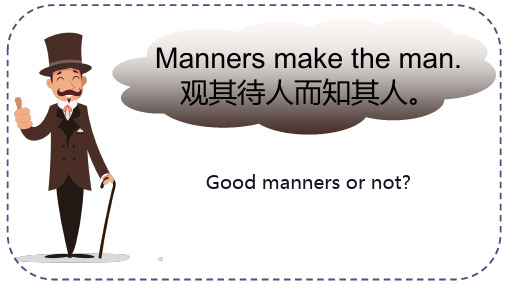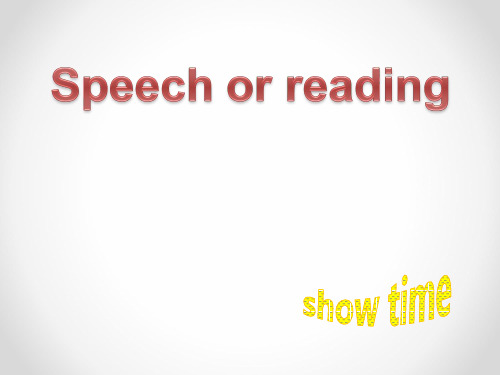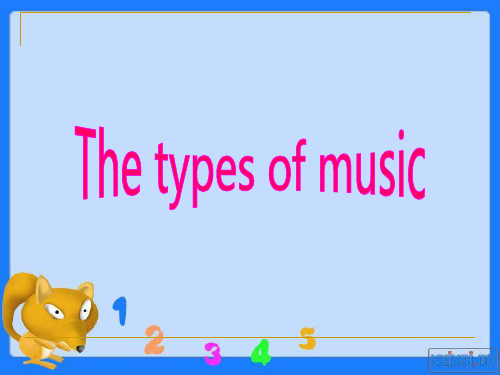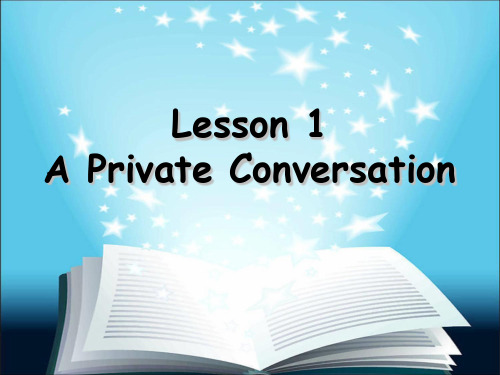新概念二册L10,L11课件
合集下载
新概念英语二册一精品PPT课件

Last week I went to the theatre. I had a very good seat. The play was very interesting. I did not enjoy it. A young man and a young woman were sitting behind me. They were talking loudly. I got very angry. I could not hear the actors. I turned round. I looked at the man and the woman angrily. They did not pay any attention. In the end, I could not bear it. I turned round again. 'I can't hear a word!' I said angrily. 'It's none of your business,' the young man said rudely. 'This is a private conversation!'.
在前面 : in front 在前面adv. eg: I will go in front, you come after. in front of 在…前面 prep eg: He was standing in front of me. in the front of 在…(整体内部的)前面 eg: He is sitting in the front of the car with the driver. ahead 向前 adv. eg: Wait here, I will go ahead and see if everything is all
新概念英语第2册教学课件 L10

Lesson Ten
Not for jazz
Not for jazz
• We have an old musical instrument. It is called a clavichord (翼琴). It was made in Germany in 1681. Our clavichord is kept in the living-room. It has belonged to our family for a long time. The instrument was bought by my grandfather many years ago. Recently it was damaged by a visitor. She tried to play jazz on it! She struck the keys too hard and two of the strings were broken. My father was shocked. Now we are not allowed to touch it. It is being repaired by a friend of my father's.
Grammar: 被动语态
• 构成:
• S.(受动) + be + v.-ed (过去分词) by ...(施动) • The glass is broken. (一般现在时)
• The glass was broken by my brother. (一般过去时)
• 对比:
• She lost her keys. • The keys were lost. • My mother bought a cake. • The cake was bought by my mother.
Not for jazz
Not for jazz
• We have an old musical instrument. It is called a clavichord (翼琴). It was made in Germany in 1681. Our clavichord is kept in the living-room. It has belonged to our family for a long time. The instrument was bought by my grandfather many years ago. Recently it was damaged by a visitor. She tried to play jazz on it! She struck the keys too hard and two of the strings were broken. My father was shocked. Now we are not allowed to touch it. It is being repaired by a friend of my father's.
Grammar: 被动语态
• 构成:
• S.(受动) + be + v.-ed (过去分词) by ...(施动) • The glass is broken. (一般现在时)
• The glass was broken by my brother. (一般过去时)
• 对比:
• She lost her keys. • The keys were lost. • My mother bought a cake. • The cake was bought by my mother.
新概念第二册ppt课件

• • • • • • • • • • • • private conversation theatre seat play loudly angry angrily attention bear business rudely adj. 私人的 n. 谈话 n. 剧场,戏院 n. 座位 n. 戏 adv. 大声地 adj. 生气的 adv. 生气地 n. 注意 v. 容忍 n. 事 adv. 无礼地,粗鲁地
• 以下短语中名词前不加冠词与加冠词意思有区别 • go to school 去上学; go to the school 去学校; • go to hospital去看病; go to the hospital去医院
3、I did not enjoy it. enjoy vt. 欣赏,享受,喜爱 ① enjoy +n. 喜欢,从当中得到一种享受(后面不能跟人) eg. I enjoy the music. enjoy the dinner\film\game ② enjoy oneself/代词 玩的开心 eg. We always enjoy ourselves. ③ enjoy +动名词 eg. Jane doesn’t enjoy swimming.
【课文讲解】
1、Last week I went to the theatre. • go to the +地点 表示去某地干什么事 • go to the theatre = go to the theatre to see a play去剧 场看戏 • go to the cinema =see a film 去电影院看电影
+ to sb. \ sth.
★business n. 事, 生意 • ① n. 生意 • businessman 生意人 • businesswoman • do business: 做生意 • go to some place on business:因公出差 eg. I went to Tianjin on business.
• 以下短语中名词前不加冠词与加冠词意思有区别 • go to school 去上学; go to the school 去学校; • go to hospital去看病; go to the hospital去医院
3、I did not enjoy it. enjoy vt. 欣赏,享受,喜爱 ① enjoy +n. 喜欢,从当中得到一种享受(后面不能跟人) eg. I enjoy the music. enjoy the dinner\film\game ② enjoy oneself/代词 玩的开心 eg. We always enjoy ourselves. ③ enjoy +动名词 eg. Jane doesn’t enjoy swimming.
【课文讲解】
1、Last week I went to the theatre. • go to the +地点 表示去某地干什么事 • go to the theatre = go to the theatre to see a play去剧 场看戏 • go to the cinema =see a film 去电影院看电影
+ to sb. \ sth.
★business n. 事, 生意 • ① n. 生意 • businessman 生意人 • businesswoman • do business: 做生意 • go to some place on business:因公出差 eg. I went to Tianjin on business.
新概念二Lesson1(共24张PPT)精品课件

theatre n. 剧场,电影院
(1) 去看戏: go to the theatre
(2) cinema n.电影院
seat n.座位 take a seat/take your seat 坐下来 sit down 坐下;be seated=take a seat 就坐
seat v.使某人就坐
Sydney Opera House
---I could not bear it. 我无法容忍
How can you bear living in this place? 你怎么能受得了住在这个地方?
bear n.熊 white bear bear hug :热情(热烈)的拥抱 give sb a bear hug
business n. 事, 生意
Sit 和 seat作为动词的区别
sit--vi; seat—vt eg: He is sitting there.他坐在那儿. You seat him.你给他找个位置. seat sb 让某人就坐,后面会加人 eg: seat yourselft. Seat him.
play n.名词: 戏剧,剧本
•
Last week I went to the theatre. I had a very good seat. The play was very interesting. I didn't enjoy it. A young man and a young woman were sitting behind me. They were talking loudly. I got very angry. I could not hear the actors.
上星期我去看戏。我的座位很好,戏很有 意思,但我却无法欣赏。一青年男子与一 青年女子坐在我的身后,大声地说着话。 我非常生气,因为我听不见演员在说什么。 我回过头去怒视着那一男一女,他们却毫 不理会。最后,我忍不住了,又一次回过 头去,生气地说:我一个字也听不见 了!”,“不关你的事,”那男的毫不客 气地说,“这是私人间的谈话!
新概念英语第二册Lesson1完整课件

[v.]
seat
seat sb.
[n.]
让某人就坐
have a very good seat
= a very good place
视线无遮挡,所处的位置非常
好,而非椅子本身材料好。
take one's seat
business
1. 事情(私人的) It's none of my business.
adj. 私人的
private school 私立学校
private letter 私人信件
privacy/ˈprɪvəsi/ n.隐私
public adj. 公众的,公开的 public school 公立学校 public place 公众场所
angry
angry adj. 生气的 be angry with sb. 生某人的气 be angry at/about sth. 为某事而生气
interested adj. 对…感兴趣的 be interested in sth/ doing sth. I am interested in sports.
enjoy v.享受…之乐,欣赏,喜爱 enjoy doing sth. enjoy swimming 喜欢游泳 enjoy one's dinner 饭吃得津津有味 enjoy oneself 玩得开心 =have fun=have a good time
late----late far----far
Listening
Why did the writer complain to the people behind him?
Last week I went to the_t_h__e_a_t_r_e_. I had a very good__s_e_a_t_. The play was very interesting. I did not_e_n__j_o_y it. A young man and a young woman were sitting behind me. They were talking_l_o_u__d_l_y_. I got very__a_n_g__r_y_. I could not hear the actors. I turned round. I looked at the man and the woman_a__n_g__ri_l_y_. They did not pay any_a_t_t_e_n__ti_o__n. In the end, I could not bear it. I turned round again. ‘I can't hear a word!’ I said angrily.
新概念2第一课L1 NCE II L1 课件

Ending
In the end, I could not bear it. I turned round again. "I can't hear a word." I said angrily. "It's none of your business." The young man said rudely. "This is a private conversation!"
having a conversation.
have a conversation with sb
n. V.
Be seated, please. Take/have a seat,
please. Sit down, please.
How were they talking?How did the writer get?
but they didn’t pay any attention to his anger.
A story
Beginning Last week, I went to the theatre. I had a very good seat. The play was very interesting. I didn't enjoy it.
(3)Let’s go to a play this evening.
at the theatre saw a play Where was his seat?
His seat was in front of a woman and a man.
What were they doing? They were
behind me. They were talking loudly. ( ) They did not pay any attention. ( ) I turned round. I looked at the man and
新概念二L10课件

Listen and find out the words you have heard. jazz beggar turn musical wooden clavichord bank conversation made belonged damaged visitor lawyer main stone sand keys strings call
被动语态:be + 动词的过去分词
1 It is calleds made in Germany in 1681.
3Our clavichord is kept in the living room. 4Recently it was damaged by a visitor.
★shock v. 使不悦或生气, 震惊 跟人的情绪有关的动词的宾语往往是 “人” (以sth为主语) The news shocks me 这个消息使我震惊, 凡是能够用 “人” 做宾语, 又是表示人的情 绪活动的动词, 有两个形容词形成 : ★令人……; + -ing 2.感到…… + -ed It is shocking.I'm shocked. sb.get a shock surprise 好事坏事都可以, 只要你没有料到 I want to give you surprise. shock 必指坏事, 令人不悦, 生气的
5It is being repaired by a friend of my father’s.
背诵图
★jazz n. 爵士音乐 a kind of music ★musical adj. 音乐的 music student : the student who learned music musical student :有音乐天赋的(当与人连用时 ★instrument n. 乐器 instrument=musical instrument ★clavichord n. 古钢琴, 不是现代的piano a kind of instrument
被动语态:be + 动词的过去分词
1 It is calleds made in Germany in 1681.
3Our clavichord is kept in the living room. 4Recently it was damaged by a visitor.
★shock v. 使不悦或生气, 震惊 跟人的情绪有关的动词的宾语往往是 “人” (以sth为主语) The news shocks me 这个消息使我震惊, 凡是能够用 “人” 做宾语, 又是表示人的情 绪活动的动词, 有两个形容词形成 : ★令人……; + -ing 2.感到…… + -ed It is shocking.I'm shocked. sb.get a shock surprise 好事坏事都可以, 只要你没有料到 I want to give you surprise. shock 必指坏事, 令人不悦, 生气的
5It is being repaired by a friend of my father’s.
背诵图
★jazz n. 爵士音乐 a kind of music ★musical adj. 音乐的 music student : the student who learned music musical student :有音乐天赋的(当与人连用时 ★instrument n. 乐器 instrument=musical instrument ★clavichord n. 古钢琴, 不是现代的piano a kind of instrument
新概念英语第二册Lesson1-L.ppt

我们还学过哪些有关说话的词呢?
பைடு நூலகம்
dialogue 比较正式,还可以指国家间的对话 talk 无拘无束或非正式的谈话 conversation 非正式的谈话 chat 就是闲聊,无关紧要的事 gosssip 闲言碎语
4. I had a very good seat seat :座位 作为名词的固定用法 have a seat 这里seat指place,而不是 chair • take a seat • take your seat
5. I did not enjoy it.
↓
the play I did not enjoy the meal / book/ the music.
→
I enjoy going out on weekends
She enjoys taking her dog and wandering around in the park.
Listen to the tape Why did the writer complain(抱怨)
to the people behind him?
Because they were talking loudly
Listen and read the text to find out the answers to the following questions
Sit down Sit on the chair Be seated, please.
• Is this seat taken?
st week I went to the theatre.
theatre n. 剧院 metre centre cinema movie
→ go to the cinama / show go to the bank / post office go to +place:去做什么
新概念英语二册L1 ppt

• • • • • • • • private adj. 私人的 反:public It’s my private letter./room. in private 私下的 反:in public 公开的 We can talk about this question in private. privacy n. 隐私 Everyone needs some privacy.
Lesson 1 A Private Conversation
Questions for discussion
• What’s your favorite movie? • Why do you like it? • Do you often go to the cinema?
Key words
Summary Writing
• • • • • • • • 1、Where did the writer go last week? 2、Did he enjoy the play or not? 3、Who was sitting behind him? 4、Were they talking loudly ,or they talking quietly ? 5、Could the writer hear the actors or not? 6、Did he turn around or not? 7、What did he say? 8、Did the young man say ,―the play is not interesting‖ or did he say ,―this is a private conversation‖?
attention n. 注意
pay attention to sb/sth 注意… You must pay attention to your handwriting. • pay a little attention 稍加注意 • pay much attention 多加注意 • pay more attention 更多注意 • pay no attention 不用注意
Lesson 1 A Private Conversation
Questions for discussion
• What’s your favorite movie? • Why do you like it? • Do you often go to the cinema?
Key words
Summary Writing
• • • • • • • • 1、Where did the writer go last week? 2、Did he enjoy the play or not? 3、Who was sitting behind him? 4、Were they talking loudly ,or they talking quietly ? 5、Could the writer hear the actors or not? 6、Did he turn around or not? 7、What did he say? 8、Did the young man say ,―the play is not interesting‖ or did he say ,―this is a private conversation‖?
attention n. 注意
pay attention to sb/sth 注意… You must pay attention to your handwriting. • pay a little attention 稍加注意 • pay much attention 多加注意 • pay more attention 更多注意 • pay no attention 不用注意
新概念2 L1课件

Lesson 1
A private conversation.
adj.私人的
n.谈话
Discussion
1. When did you go to the theatre/cinema last time?
2. Do you get angry easily?
Discussion
3. What kind of thing makes you angry?
bear/stand忍受,遭受,前者语 气较轻,二者常混用 put up with 忍受,容忍(常用 于口语中)
business n.事情,生意
• It’s none of your business. 不关你的事。
• Mind your own business. 管好你自己的事。
• do business with sb. 和某人做生意
adj. or adv.
angry/angrily rude/rudely loud/loudly quiet/quietly
1.The writer got very ____. That’s why he looked at them ____. 2.All his classmates do not like him because he is ____. He always speaks to others ____. 3.The teacher has a ____ voice. He likes to speaking ____. He always says that he can’t hear us if we don’t talk _____. 4.Listen. It’s very ____ in the reading room. Everybody is reading their books ____. So, please keep ____.
A private conversation.
adj.私人的
n.谈话
Discussion
1. When did you go to the theatre/cinema last time?
2. Do you get angry easily?
Discussion
3. What kind of thing makes you angry?
bear/stand忍受,遭受,前者语 气较轻,二者常混用 put up with 忍受,容忍(常用 于口语中)
business n.事情,生意
• It’s none of your business. 不关你的事。
• Mind your own business. 管好你自己的事。
• do business with sb. 和某人做生意
adj. or adv.
angry/angrily rude/rudely loud/loudly quiet/quietly
1.The writer got very ____. That’s why he looked at them ____. 2.All his classmates do not like him because he is ____. He always speaks to others ____. 3.The teacher has a ____ voice. He likes to speaking ____. He always says that he can’t hear us if we don’t talk _____. 4.Listen. It’s very ____ in the reading room. Everybody is reading their books ____. So, please keep ____.
新概念英语二册NCE2L10课件

be shocked
2.1 Listen, repeat and check.
11 Now we are not allowed to touch it.
be not allowed to
2.1 Listen, repeat and check.
12 It is being repaired by a friend of my father's.
A letter was delivered this morning.
this morning
a was delivered
letter
3.5 Exercises C: Transform the sentences.
I ______ (give) a present.
I was given a present.
09 She struck the keys too hard and two of the strings were broken.
struck the keys two of the strings
2.1 Listen, repeat and check.
10 My father was shocked.
be made in
2.1 Listen, repeat and check.
04 Our clavichord is kept in the living room.
in the living room
2.1 Listen, repeat and check.
05 It has belonged to our family for a long time.
1
2
3
43.3 ຫໍສະໝຸດ iscover the structure.
2.1 Listen, repeat and check.
11 Now we are not allowed to touch it.
be not allowed to
2.1 Listen, repeat and check.
12 It is being repaired by a friend of my father's.
A letter was delivered this morning.
this morning
a was delivered
letter
3.5 Exercises C: Transform the sentences.
I ______ (give) a present.
I was given a present.
09 She struck the keys too hard and two of the strings were broken.
struck the keys two of the strings
2.1 Listen, repeat and check.
10 My father was shocked.
be made in
2.1 Listen, repeat and check.
04 Our clavichord is kept in the living room.
in the living room
2.1 Listen, repeat and check.
05 It has belonged to our family for a long time.
1
2
3
43.3 ຫໍສະໝຸດ iscover the structure.
新概念二册L10课件ppt

Exercise
二、单项选择
1.Have you ever the English Speaking Contest held by CCTV?
A. enter
B. entered for C. entered D. entered into
2.John did in the exam, Tom did even .
be made by 表示制造人 This cake is made by my sister.
Exercise
一、选词填空
made of made from made in made by
1.All the furniture in this room was made by my grandfather. (500)
Suddenly someone_s_h_o_ut_e_d_. 'It's two minutes past twelve! The clock has_s_t_o_p_p_ed__!' I _lo_o_k_ed__at my watch. It was true. The big clock _r_e_fu_s_e_d_to _w__el_c_om__e__the New Year. At that moment, everybody b_e_g_a_n_to _la_u_gh__and _s_in_g__.
the key to the front door 前门钥匙
a key to the exercise 练习题答案
allow v. 允许
allow sb to do sth
允许某人做某事
touch v. 触摸 a near touch 千钧一发
二、单项选择
1.Have you ever the English Speaking Contest held by CCTV?
A. enter
B. entered for C. entered D. entered into
2.John did in the exam, Tom did even .
be made by 表示制造人 This cake is made by my sister.
Exercise
一、选词填空
made of made from made in made by
1.All the furniture in this room was made by my grandfather. (500)
Suddenly someone_s_h_o_ut_e_d_. 'It's two minutes past twelve! The clock has_s_t_o_p_p_ed__!' I _lo_o_k_ed__at my watch. It was true. The big clock _r_e_fu_s_e_d_to _w__el_c_om__e__the New Year. At that moment, everybody b_e_g_a_n_to _la_u_gh__and _s_in_g__.
the key to the front door 前门钥匙
a key to the exercise 练习题答案
allow v. 允许
allow sb to do sth
允许某人做某事
touch v. 触摸 a near touch 千钧一发
相关主题
- 1、下载文档前请自行甄别文档内容的完整性,平台不提供额外的编辑、内容补充、找答案等附加服务。
- 2、"仅部分预览"的文档,不可在线预览部分如存在完整性等问题,可反馈申请退款(可完整预览的文档不适用该条件!)。
- 3、如文档侵犯您的权益,请联系客服反馈,我们会尽快为您处理(人工客服工作时间:9:00-18:30)。
Can the trees be cut down?
The work will be finished by us tomorrow. Trees are being planted by them by the river. The work has been finished by Mary. A letter was being written to my uncle by me at 8:00 yesterday evening. The work had been finished by them the day before yesterday. He said the old building would be put down by them.
Thank you !
•Please contact me
liuxiaorongbj@
made in(a country)表示产地 made of (a material )表示用某种材 料制成 made from (a number of materials)表示用数种材料制成 made by(someone)表示制造人
We have an old musical instrument.It____a clavichord. It_____in Germany in 1681. Our clavichord_____in the living room. It has belonged to our family for a long time. The instrument______by my grandfather many years ago.Recently it______by a visitor.She tried to play jazz on it!She struck the keys too hard and two of the strings_____.My father_______.Now we ________to touch it. It________by a friend of my father’s.
Repeat it
一般现在时 now ,often and always 一般过去时 What happened? 现在完成时 What has happened? 过去进行时 What were you doing when I telephoned? 被动语态 It was made in Germany.
Exercises:
I _____(have) dinner at a restaurant when Tony Steele ____(come) in. Tony _____(work) in a lawyer’s office years ago, but he now ____(work) at a bank. He____ (get) a good salary, but he always (borrow) money from his friends and never ____(pay) it back. Tony ____(see) me and ____(come) and___ (sit) at the same table. He never ____(borrow) money from me. While he____ (eat), I____ (ask) him to lend me 20 pounds. To my surprise, he_____ (give) me the money immediately. “I never ____(borrow) any money from you,” Tony ____(say), ”so now you can pay for my dinner.”
Revision Tenses
Phrases
1.be shocked at sb 2.damage损害(使失去价值)destroy 3.allow to do VS let do 4.pay back 归还 pay off 偿清债务 pay up 付清 pay sb out 报复某人 pay down 即时支付
一般将来时 shall/will be done
现在进行时 am/is/are being done 现在完成时 have/has been done 过去进行时 was/were being done 过去完成时 had been done 过去将来时 would be done
Special difficulties
常用被动语态
时态 动词形式(以do为例) 例句
English is ied by us.
The bike was mended by him yesterday.
一般现在时 am/is/are done 一般过去时 was/were done 情态动词 can/may/must be done
What’s this? When was it built?
Lesson 10
• Questions: • 1.What happened to the clavichord? • 2.Do we own an old clavichord or do we own a new piano? • 3.When was it made? • 4.Who bought the instrument many years ago? • 5.Who damaged it recently? • 6.What did she try to do? • 7.What did she break? • 8.Who is repairing it now?
5.salary: 月薪或年薪。good/bad salary 主要指脑力工作者的收入 wages:日薪或周薪。much/little wages 主要指体力工作者的收入 6.borrow sth from sb lend sth to sb 7.deserve punishment (a reward) 应受处罚(奖赏) 8.be on strike 罢工
